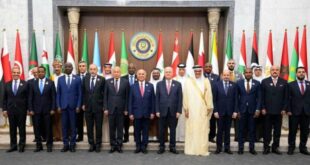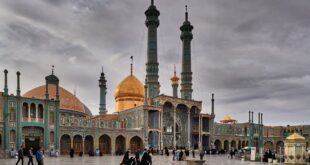Â
The Baghdad government plans to send 6,000 Kurdish soldiers — known as peshmerga — to help secure oil and electricity installations in the multiethnic region of Kirkuk.
Jabbar Yawir, the undersecretary of the autonomous Kurdistan region’s Ministry of Peshmerga Affairs, says the Kurdish self-rule government and the federal government in Baghdad have agreed to send the troops to protect sensitive sites in the oil-rich Kirkuk Governorate.Â
Those sites include power facilities and parts of the oil pipeline that leads from Mosul to the port of Ceyhan in Turkey — the conduit for most oil exports from northern Iraq’s oil fields.
“These forces are Iraqi before being Kurdish…. They will provide support for the security forces in the governorate,†said one Kirkuk official who backs the plan.The forces belong to the government of Kurdish-administered northern Iraq, which is pushing for Kirkuk to be incorporated into the Kurdistan region. The plan to deploy peshmerga troops has therefore provoked controversy among minority groups in Kirkuk Governorate, which is under the control of the Baghdad government and outside the current Kurdish region.
Awaiting A Green Light
      According to Yawir, the deployment can begin as soon as there is a final green light from Iraqi Prime Minister Nuri al-Maliki.
It remains uncertain when that approval might come. But in the meantime, the proposal is being received with mixed opinions in multiethnic Kirkuk Governorate.
Jawad al-Janabi, a member of the Kirkuk Governorate Council and a representative of the predominantly Kurdish Kirkuk Brotherhood List, said that if peshmerga forces are deployed to Kirkuk, they will succeed in implementing security plans for the region.
“If we recall when the city of Kirkuk was liberated [with the toppling of the Saddam Hussein regime in 2003], for six months during the presence of peshmerga forces there, we had a very good security situation, and people were able to come and go, even after midnight,” al-Janabi says.
“These forces are Iraqi before being Kurdish; they are sons of the Iraqi people,” he continues. “They are regular troops, and will provide support for the security forces in the [Kirkuk] governorate.â€
Turkoman And Arab Concerns
But leaders of Kirkuk’s other two largest ethnic groups, the Turkoman and Arab communities, disagree.
Hassan Toran, a representative of the Turkoman group in the Kirkuk Governorate Council, says any deployment of peshmerga forces to Kirkuk should only be carried out with the agreement of all parties, and warned that the details of the planned deployment remain obscure.
“Some say that they are to protect the pipelines and power lines between Kirkuk and Baiji. And some say that they are to protect the Governorate of Kirkuk,” Toran says. “I believe that this should be done only with the agreement of all the parties in the Governorate Council. Whether they agree or not, the subject should be open to discussion because it is a matter that concerns more than one ethnic group or one [party] list; it concerns the whole of Kirkuk Governorate.â€
Muhammad Khail, a member of the Arab group in the Governorate Council, says any protection force should be composed of all the groups that form the governorate’s social fabric.
“The [Kurdistan] regional government intends to bring 6,000 peshmerga to Kirkuk, but I believe that this will not solve the problem,†he says. “There is a sufficient Iraqi Army [presence] in Kirkuk. They can form units. Why are the other units not being given the proper role in defending Kirkuk in a proper way?â€
Khail recalls hearing of the formation of security units from other ethnic groups, such as Turkomans or Arabs, but he says he does not believe that such groups can solve Kirkuk’s problems. “They need to form a security force for the national defense of Kirkuk. A national force can obtain information prior to an event, and that’s what’s important,†he says.
Kirkuk, which also has communities of Chaldean Assyrians and Christians, is some 250 kilometers north of Baghdad.
The city has seen devastating car bomb attacks, mostly aimed at either of the two main Kurdish political parties in northern Iraq, and repeated sabotage of power lines and the oil pipeline.
If the peshmerga deploy to the province, it will not be the first time Kurdish forces have been sent to help secure areas outside the three Kurdish-administered provinces of northern Iraq.Â
Three battalions of peshmerga were sent to Baghdad in March to help with security in the capital.Â
Â
Â
Â
 Eurasia Press & News
Eurasia Press & News



